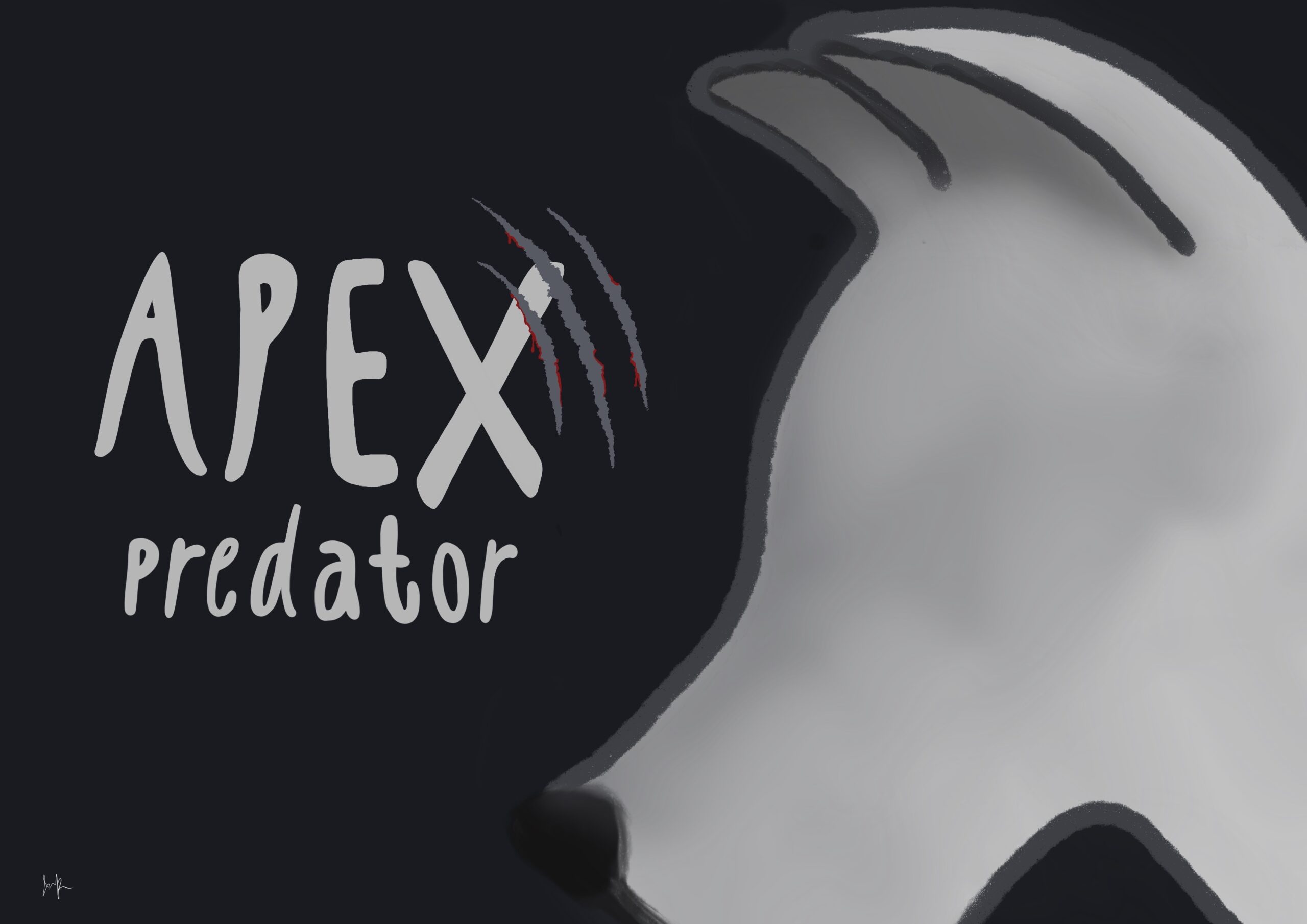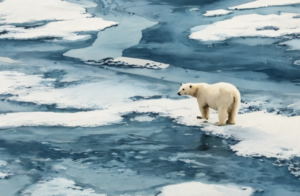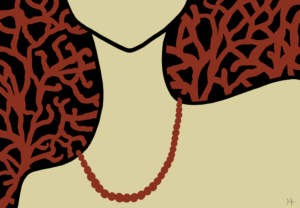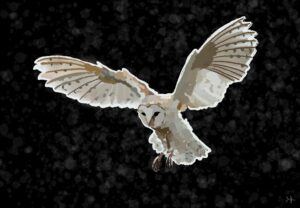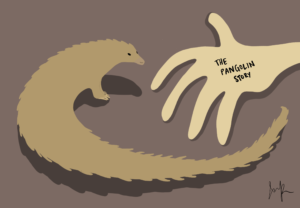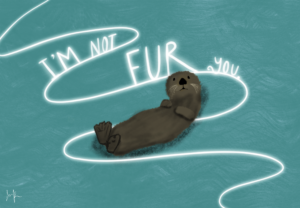Illustrated by Julianne Park. All rights reserved.
Our living world is composed of countless food chains interacting with one another. These food chains are affected by all the components that form them. For example, a food web in a coral reef ecosystem is affected by the coral that composes it, the fish and other species that eat the coral, and the tiny creatures that build the coral up. Each individual species significantly impact every food chain. One can think of a food chain as a tower layered by different species that are all dependent on one another. Take one out, and the entire thing collapses.
At the top of every food chain is what we call an apex predator. These species have no predators and are dominant in their ecosystem. Apex predators maintain the food chain by limiting the populations of their prey in order to maintain balance. Because of this, apex predators have the smallest population since their population is limited by the population of their prey. After humans became the universal dominant species on Earth, we have impacted the populations of apex predators everywhere. We have poached them, wreaked havoc on their habitats, and drastically reduced their populations. Since apex predators are few in number and take longer to reproduce, we have destroyed the balance of the fragile ecosystems on our planet. There is no denying this because the impacts of our actions are unignorable.
In the 1900s, wolves were eradicated in Yellowstone National Park. People killed wolves en mass at the park, attempting to ‘control predator’ populations. While, at the time, this seemed like a good idea, there were serious consequences to this action. Wolves were the apex predators at the park, so by removing them, the elk and coyote populations increased. According to the Yellowstone Insider, the increase in coyote population led to “fewer rodents and other small game, which reduced the population of foxes, hawks, and eagles” (Wolves in Yellowstone: A Short History). The increase in elk resulted in the decline in “aspen trees… which contributed to the disappearance of beaver that relies on aspen for a primary food source”. The removal of wolves led to further complications with other species, such as bears, salmon, and birds. The eradication was clearly harmful to Yellowstone Park, and with the reintroduction of wolves, we really see how important apex predators are to our ecosystems.
While is boundless evidence pointing to the fact that apex predators are key to our ecosystems, there would be no point in listing them here. You may feel helpless that there is nothing you can do to stop people from hunting and killing, but that’s not all one can do to help. Spread the word by sharing this article or by researching on your own and teaching the facts to others. Apex predators are dominant in their ecosystems, but they are helpless against humans. Their fate and the fate of our ecosystems lie in our hands. Every action we take will affect the future of our planet.
